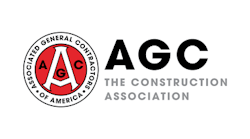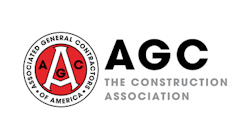Civil Engineers Commend House for Highway-Transit Extension and Urge Senate to Pass Continuing Resolution Before FAST Act Expiration
The following is a statement by K.N. Gunalan "Guna," Ph.D., P.E., President, American Society of Civil Engineers (ASCE) on the passage of H.R. 8319: Continuing Appropriations Act, 2021 and Other Extensions Act, which would extend federal funding levels through December 11, 2020, and includes one-year FAST Act Extension:
Washington - “We commend the House of Representatives for extending the FAST Act, thereby ensuring surface transportation programs do not lapse next week. We now urge the Senate to act quickly to pass the continuing resolution before September 30th.
While we appreciate the House providing some level of certainty over the next year, ASCE is disappointed that the extension maintains flat funding and does not address vital emergency relief for state departments of transportation (DOT) and transit agencies. Additional funding is necessary to prevent further delay and/ or cancelation of projects due to the impact of the pandemic on transportation revenues. ASCE now urges Congress to provide relief funding for transit agencies and state DOTs in the short-term, while also using the next year to pass a robust surface transportation reauthorization that addresses the long-term solvency of the Highway Trust Fund and makes the investments that are necessary to maintain and modernize our nation’s transit, roads, and bridges.
ASCE released new data today that demonstrates that our current transportation system investment trends are unsustainable for a modern, reliable transportation network. Shortchanging investments in roads, bridges, and transit systems have serious long-term economic consequences for American households and businesses. Losses to households and industries will amount to $1.3 trillion by 2039 from deficient transportation systems as the cost to do business rises and productivity declines. If industry costs are passed onto customers, costs per household will average $625 per year, which equates to about 7 weeks of groceries for American households. In addition, this will also impact our competitiveness in the global market which in turn could translate to the loss of 540000 jobs.
The cost of continuing to underfund America’s surface transportation system is producing a mounting burden on American households and businesses. COVID-19 has exacerbated an already difficult revenue situation, and without federal support, worsening condition trends are likely to accelerate.”










